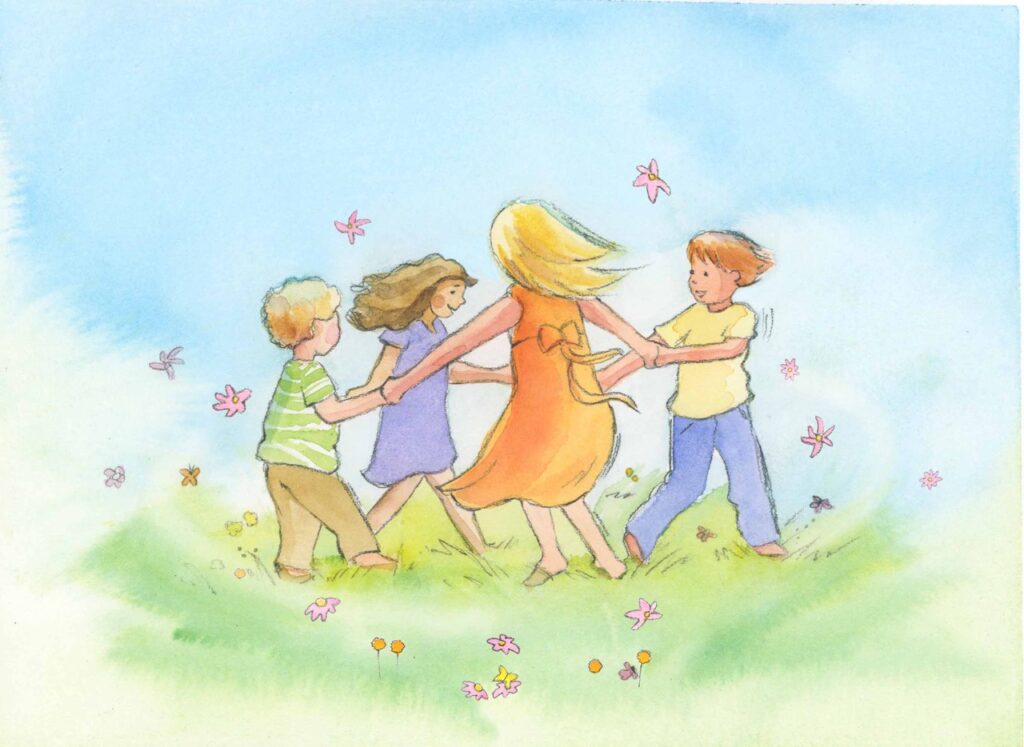Summer break offers children the freedom to explore, play, and discover new things, making it an ideal time for teachers to create immersive experiences that connect young learners to the world around them. One of the most enriching ways to engage children during this time is by blending music and nature. Early childhood music classes that explore the beauty of the natural world not only entertain but also foster cognitive, emotional, and physical development. By introducing children to the sounds, rhythms, and themes of nature through music, teachers can create an engaging environment that nurtures a love for both the arts and the outdoors.
The Power of Nature and Music Together
The connection between music and nature is not just poetic—it’s deeply rooted in developmental psychology. Studies have shown that exposure to natural environments can enhance a child’s mood, attention, and ability to focus, while music stimulates areas of the brain involved in language, memory, and emotional regulation. By combining these two elements, teachers can help children process and appreciate the world around them in a holistic way. Outdoor play in early childhood can reduce stress and promote mental health. When integrated with music, these activities become even more powerful. Imagine a classroom where children are not just singing about animals or rainstorms but are actively listening to the sounds of nature—birds chirping, leaves rustling, or a stream trickling—and using these sounds to inspire songs and rhythms. This approach fosters an appreciation for the natural world while enhancing auditory and motor skills.
Engaging Children with Nature Sounds and Instruments
One of the easiest ways to integrate nature and music is through the use of natural soundscapes. Early childhood music teachers can create opportunities for children to listen to recordings of natural sounds—such as wind, rain, or animal calls—and then incorporate those sounds into their music activities. For example, children can replicate the sounds of animals by singing or playing instruments like tambourines or maracas, which can mimic the sound of rain or wind. These hands-on activities allow children to connect the natural world with their musical creations. By incorporating natural sounds into their music, children develop a deeper understanding of both music and the environment. Real world experiences like nature walks as a basis for music-making not only enhances cognitive skills but also promotes social-emotional development. As children collaborate on composing and performing their songs, they practice empathy, communication, and cooperation.
The Physical Benefits of Music and Nature
Incorporating nature into music classes also has physical benefits. The act of moving to music outdoors helps develop gross motor skills and coordination. Children might be encouraged to dance like the wind or move like a butterfly, mirroring the rhythms and movements they see in nature. As they sing or play instruments outdoors, they practice body awareness and balance.
Teachers can also integrate nature-inspired music and movement games that align with specific rhythms. For example, a rhythm game that mimics the gentle sway of trees or the movement of water can improve both fine and gross motor coordination. These activities, while enjoyable, help children practice physical control, balance, and rhythm—all key components of their physical development.
Fostering an Appreciation for the Environment
By incorporating nature and music into early childhood music classes, teachers not only create a rich learning environment but also cultivate an appreciation for the natural world. As children engage with the sounds of birds, trees, and water through music, they learn to respect and protect their environment. Environmental education at a young age helps children form a strong, lasting bond with nature, encouraging them to take an active role in environmental conservation.
Conclusion
Integrating nature into early childhood music education during the summer offers a unique opportunity for children to grow both intellectually and emotionally. Through listening to, creating, and moving to the sounds of nature, children develop cognitive skills, build physical coordination, and foster a deep connection to the environment. Music teachers can use the summer break as a time to take learning outdoors, helping children build lasting memories while nurturing a love for both music and nature.








 nd promote a few classes “al fresco” – have parents meet you at a local park or under a shady tree near your studio (of course, get permission if it’s not your property.) Ask families to bring picnic blankets or beach towels, and water bottles. Encourage children to listen to the music of nature, like birds singing and leaves blowing in the breeze. You can even have an impromptu summer parade!
nd promote a few classes “al fresco” – have parents meet you at a local park or under a shady tree near your studio (of course, get permission if it’s not your property.) Ask families to bring picnic blankets or beach towels, and water bottles. Encourage children to listen to the music of nature, like birds singing and leaves blowing in the breeze. You can even have an impromptu summer parade!